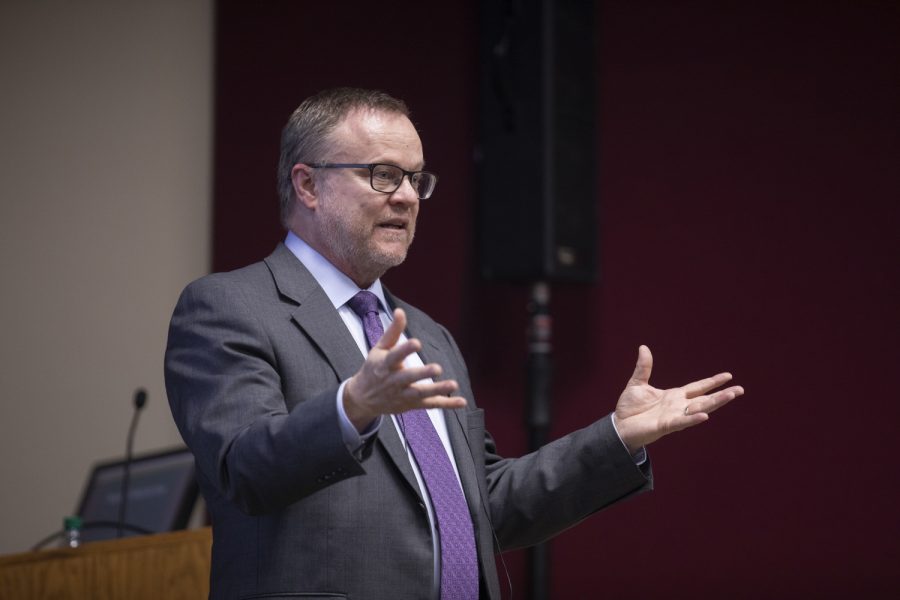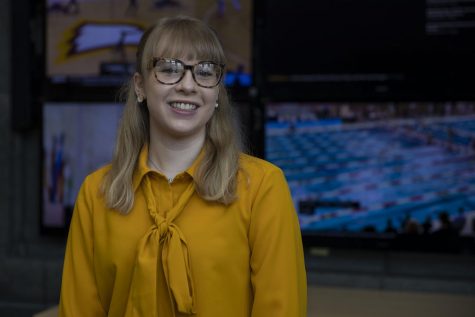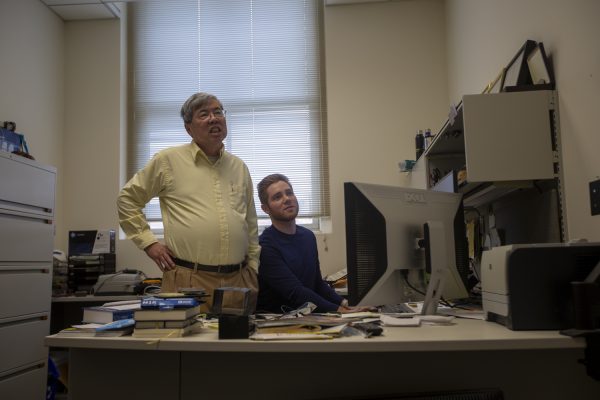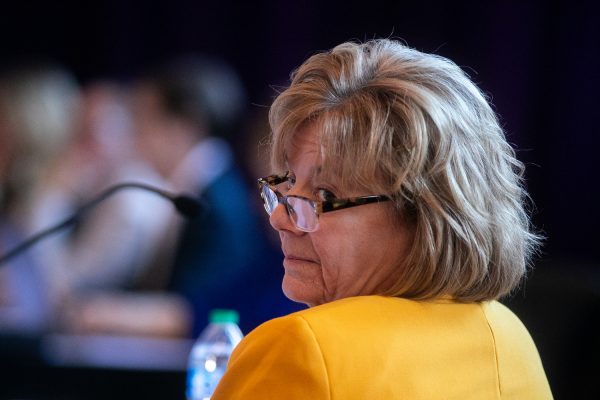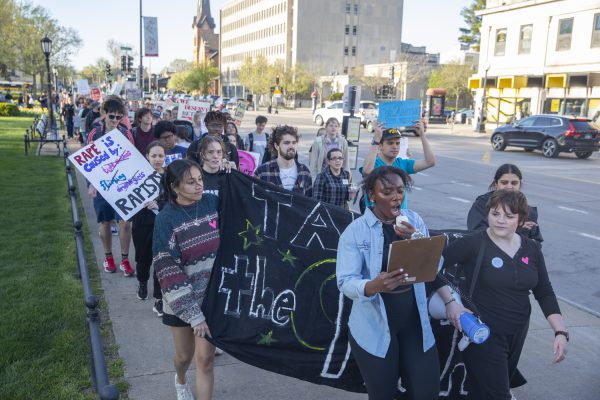UI VP for Research addresses policies related to researchers disclosing foreign activities
The University of Iowa Vice President for Research addressed the university and federal policies for researchers when it comes to disclosing foreign activities for their work.
J. Martin Scholtz of Texas A&M College of Medicine speaks during the Vice President of research candidate forum on Thursday, February 14, 2019. Scholtz is the first candidate in the search.
March 9, 2020
In light of federal investigations into the foreign activities of National Institutes of Health researchers, University of Iowa Vice President of Research Marty Scholtz released a letter reminding researchers on campus to disclose external conflicts of interest and foreign activities.
The letter said researchers need to follow university policies, federal laws governing appropriate use of laboratory space, and agency laws to protect the integrity and reputation of the UI. This move follows investigations into foreign-research activity at institutions such as Harvard University, Emory University, and the University of Kansas.
“International collaboration fuels important research and scholarship at our university,” the letter said. “While we must all be vigilant against abuse of these relationships, such cases represent an infinitesimal fraction of the creative, compliant, and urgent work taking place here day after day by the vast majority of you.”
The UI Operations Manual states that the university is a steward of public trust and that research should be carried out with integrity and free from outside conflicts of interests, Stephen Pradarelli, strategic-communications director for the Vice President for Research’s Office, said in an email to The Daily Iowan.
Researchers are required to disclose conflicts of interest, financial and otherwise, even if it does not involve foreign entities, Pradarelli said. Research often involves working with other countries in an ethical way that is reported appropriately, he added.
“Collaboration within the university, the United States, or across the globe is done for the same reasons: to share ideas, validate findings, pool resources, address global problems, fill gaps in expertise, access or share facilities and equipment, and learn new techniques and skills, among other things,” Pradarelli said.
RELATED: Grassley raises concern for safety of U.S. intellectual property
Foreign threats to research have led to an increase in communication with faculty and staff about reporting policies, and the review and strengthening of current policies, he said.
The American Association of Universities, a prestigious national group of research universities that encompasses the UI, and the Association of Public and Land-Grant Universities partnered to write a summary of effective practices to address foreign security in fall 2019, said American Association of Universities Vice President for Policy Tobin Smith.
The campuses do a first assessment of how the effective practices are working through a survey, and look at what is being done well and where there are gaps, he said.
The two associations are currently compiling information from the surveys to update their effective practices summary, Smith said. They are looking at two things: what are universities doing to make sure faculty are adequately disclosing what they are supposed to, and what universities do to train students and faculty about responsible conduct of research, he added.
Faculty researchers are required to disclose both foreign and domestic conflicts of interest and outside funding sources, he said.
“Collaborations help us to know where the cutting edge sciences, wherever it is in the world, and also stay competitive in those areas of cutting edge research,” Smith said. “If we build walls around the country and we think that we know everything, we will quickly fall behind in science, and that’s why international collaborations are critical in fundamental and foundational research.”



